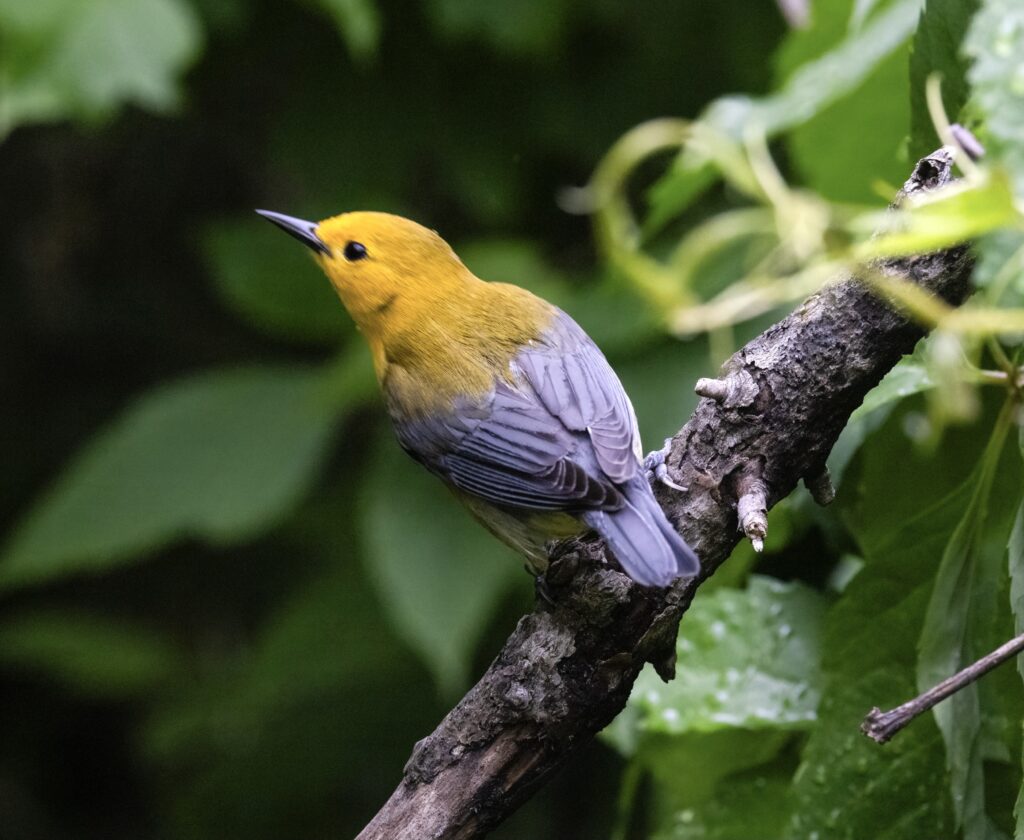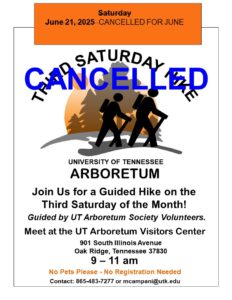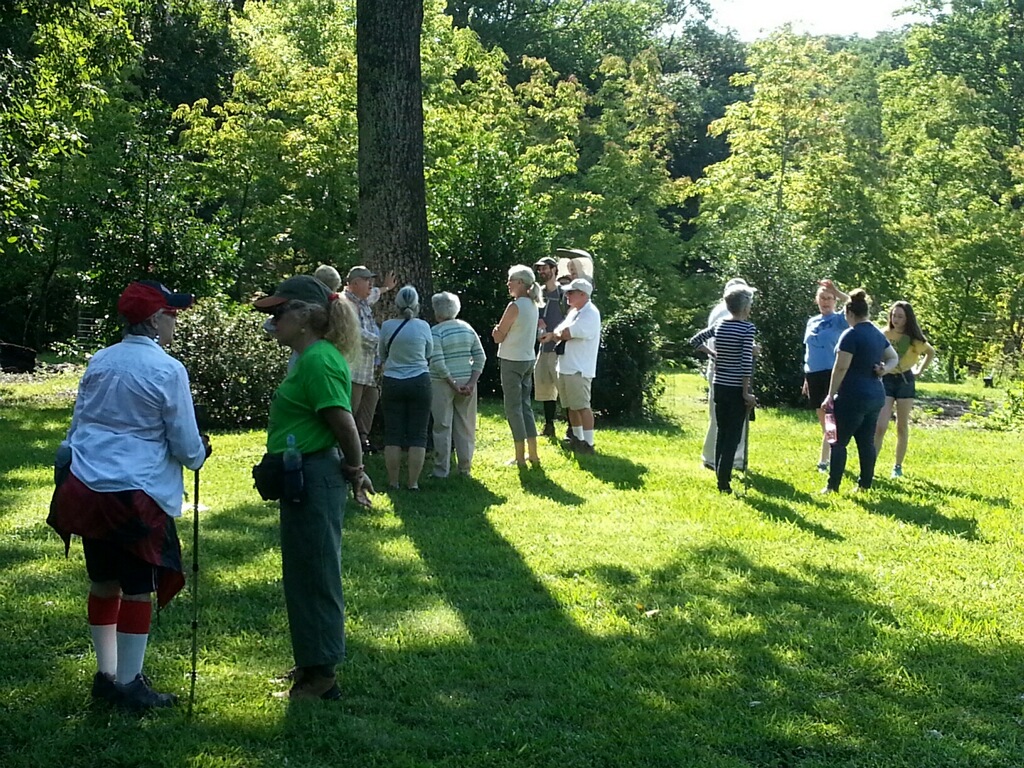Enjoy the Birds of Summer with Stephen Lyn Bales
Register for Zoom Link and Recording

Thursday, July 10th, 7pm EDT on Zoom
Summertime brings an array of different birds. There are chats and grosbeaks near the fields, vireos and cuckoos in the woods and kingbirds chasing bees for a meal. The next time you are boating, canoeing, or kayaking, keep an eye out for flashes of bright yellow among the trees on the shoreline. Yes, prothonotary warblers spend their summers here too.
Join the UT Arboretum Society via Zoom as Michelle Campanis, education coordinator at the University of Tennessee Arboretum, and naturalist/author Stephen Lyn Bales give us an overview of the “Birds of Summer.” This program will be recorded and sent to everyone who registers. Closed captions are available.
Please contact Michelle at mcampani@utk.edu for any questions or registration issues.
Third Saturday Hike Cancelled for June

Saturday, June 21 – We will not have a Third Saturday Hike in June. We encourage you to support the Oak Ridge Lavender Festival!

